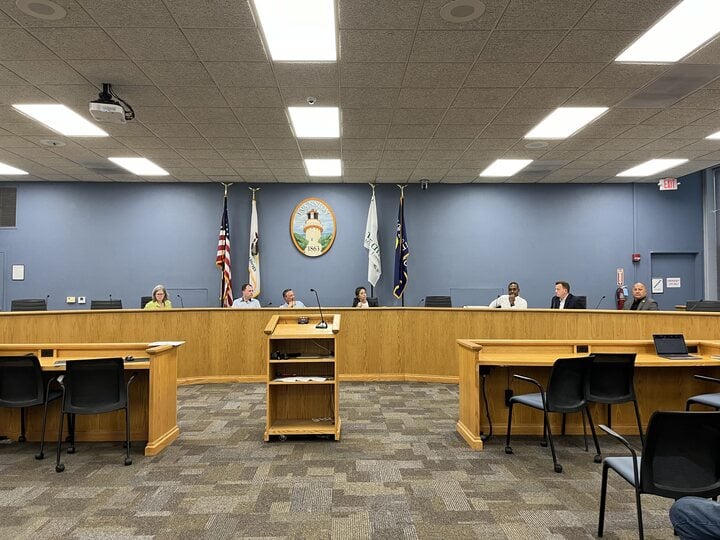Residents of water-damaged units at 1900 Sherman Ave. can stay in their apartments if they sign a risk waiver, a spokeswoman for the Housing Authority of Cook County said Tuesday.
The housing authority, which manages the public housing development, told the residents of 27 units in late January they would have to move until water leaks are fixed. Soon after, one of the affected residents circulated a petition among residents who wanted to stay in their homes. In total 18 residents signed.
Last week, HACC issued a press release defending its plan to relocate all affected residents, saying the leaks pose a serious health risk. Since then the housing authority has decided to let residents stay if they would prefer not to move, housing authority spokeswoman Avis LaVelle said Tuesday.
“There are a lot of residents who feel like this is an extreme imposition on them,” LaVelle said. “(Housing officials) are going to offer those residents the option of relocating or not.”
Lorri Newson, HACC’s executive director, will meet with Mayor Elizabeth Tisdahl and representatives from an architectural firm tomorrow to discuss the relocation, LaVelle said. Management will hold a meeting for affected residents March 5 to discuss their options, and the residents will then have seven days to decide if they want to relocate.
After checking out the building, an architect told the housing authority leaks on the exterior should be fixed through tuckpointing, a process of stopping small holes in brick surfaces.
Until the tuckpointing is completed, water can seep into the 27 affected units, Newson told THE DAILY last week, exposing residents to health hazards, Newson said.
“We’re dealing with senior citizens, and in some cases, some people have poor vision,” she said. “So if water’s on that floor, they may not see that water. They might slip and fall.”Mold could also develop in temporarily unoccupied units with standing water, Newson continued.
Even though residents now have the option to stay, the housing authority still believes the risks are serious and is encouraging affected residents to relocate, LaVelle said. For residents that choose to relocate, the housing authority will provide complete packing and moving assistance. Relocated residents will be able choose their temporary homes from several public housing options, and they can move back in once the leaks are repaired.
Several residents who live in the affected units say the water damage is minimal. Brian Pendleton, who circulated the petition, said the burden of moving out far outweighs the small leaks of water that have only come five or six times in the five years he has lived in the building.
Pendleton said he was happy to learn he will be able to stay in his apartment.
“I’ve spent years just getting this place shaped up,” said Pendleton, who is 71 years old. “I don’t want to do it over again.”
Relocations due to water leaks have been rare in Evanston, according to Jeff Murphy, the city’s assistant director of property standards and housing rehabilitation.
“I’ve been here almost 12 years, and I’ve never seen that,” Murphy said. “The only time I can see that happening is if there was a significant mold problem, and I haven’t heard anyone say anything about mold (at 1900 Sherman Ave.).”
The housing authority has said the leaks are the products of normal wear and tear for the 30-year-old building. HACC has started its search for a construction crew, but the repairs will likely not begin until the summer, Newson said.[email protected]












